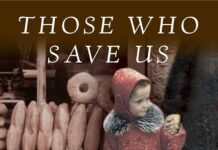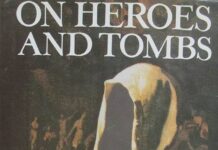in the vast landscape of memoirs that chronicle human resilience, Left to Tell by Immaculée Ilibagiza stands out as a profound testament to the power of faith and forgiveness amid unimaginable horror. This harrowing account of survival during the Rwandan genocide invites readers into the intimate confines of one woman’s journey through fear, loss, and ultimately, spiritual awakening. In Finding Faith and Forgiveness: A Review of Left to Tell, we explore how Ilibagiza’s narrative not only bears witness to historical tragedy but also offers a deeply personal exploration of hope that transcends despair.
Finding Faith and Forgiveness Explored Through the Personal Journey in Left to Tell by Immaculée Ilibagiza
Immaculée Ilibagiza’s memoir is a profound testament to the resilience of the human spirit, illustrating how faith can serve as a beacon in the darkest of times. Hidden away in a cramped bathroom during the Rwandan genocide,her trust in God never wavered. Through prayer and introspection, she found the strength to confront unimaginable loss and fear. This spiritual journey transforms Left to Tell from a simple survival story into a powerful narrative about the depths of faith and the radical courage it inspires.
The theme of forgiveness emerges as an equally compelling force in Ilibagiza’s story.Rather than succumbing to bitterness, she chooses compassion, which acts as both a balm and a breakthrough. her path to forgiveness challenges readers to reconsider thier own struggles and grudges, offering a framework rooted in empathy and healing. Key elements of her transformative journey include:
- reflection: Sincere self-examination as a foundation for healing.
- Prayer: A spiritual anchor that cultivates peace amidst chaos.
- Empathy: Seeing humanity in those who caused pain.
- Release: Letting go of anger and embracing freedom.
| Aspect | Impact |
|---|---|
| Faith | Provided hope and inner peace during captivity |
| Forgiveness | Enabled healing beyond pain and trauma |
| Resilience | Fuelled perseverance over months of hiding |
A Deep Dive into the Historical Context and the Rwandan Genocide’s impact as Portrayed in Left to Tell

Best-Selling Books in This Category
Immaculée Ilibagiza’s memoir transcends a simple recounting of events by weaving a vivid tapestry of Rwanda’s complex socio-political landscape that fueled one of the most tragic genocides in recent history. Through her intimate storytelling, readers are exposed not only to the brutal realities of ethnic divisions between Hutus and Tutsis but also the colonial legacies and deep-rooted tensions simmering beneath the surface. This nuanced portrayal challenges oversimplified narratives, inviting reflection on how historical forces and human choices converged into a catastrophic upheaval that shattered communities and lives.
In Left to tell, the impact of the genocide is presented with raw honesty, highlighting not just the pervasive violence but the resilience of the human spirit. Ilibagiza’s journey is a powerful testament to survival, faith, and forgiveness amid unimaginable loss. The narrative captures the paradox of humanity during crisis-where cruelty coexists with compassion, and hatred is met with hope. Below is a brief overview of central themes she explores related to the genocide’s impact:
- Ethnic tensions: The historical divisions and propaganda fueling distrust
- Personal loss: The devastating effect on families and communities
- Resilience and faith: Spiritual strength as a source of healing
- Reconciliation: The challenging path toward forgiveness and rebuilding
| Aspect | Description |
|---|---|
| Duration | 100 days of genocide |
| Casualties | estimated 800,000 |
| Main victims | Tutsi ethnic group |
| Meaning of faith | Source of hope and survival |
The role of Silence and Solitude in Healing Trauma Reflected in the Author’s Seven Weeks in a Tiny Bathroom

In the confined space of a tiny bathroom, Immaculée Ilibagiza discovers an unexpected sanctuary where silence becomes a profound medium for healing. Removed from the chaos of the outside world and the horrific violence of the Rwandan genocide, her solitude acts as a crucible where pain is confronted and conversion begins.The absence of external noise allows her to tune into the deeper layers of her psyche, fostering a connection with her innermost fears and hopes. This intense quiet not only shields her but also becomes an active participant in her emotional recovery, illustrating that sometimes, the most powerful refuge lies in the stillness one cultivates within.
Within this spiritual retreat, the role of silence and solitude can be summarized as a triad of essential healing elements:
- Reflection: Time alone prompts profound self-examination and emotional clarity.
- Reconciliation: Quiet space offers the fertile ground for forgiveness, both of self and others.
- renewal: Solitude nurtures the gradual rebuilding of hope and faith beyond trauma.
The tiny bathroom,far from being merely a physical constraint,serves as a sacred space where Ilibagiza transforms pain into peace-underscoring a universal truth about the restorative power of being alone with oneself.
| Healing Aspect | Effect of Silence & Solitude |
|---|---|
| Emotional Depth | diving deep into suppressed feelings |
| Spiritual Connection | Strengthening faith and inner guidance |
| Mental Clarity | Removing distractions to focus on growth |
| Forgiveness | Creating openness to release bitterness |
How Unwavering Faith Acts as a Beacon of Hope Amidst Devastation in Ilibagiza’s Narrative

In the darkest moments of personal and collective tragedy, faith emerges not merely as comfort but as a powerful guiding light. immaculée Ilibagiza’s journey, as chronicled in Left to Tell, illustrates how an unshakeable spiritual foundation can transform despair into resilience. Her steadfast belief provided more than solace; it became a catalyst for inner peace and emotional survival amid the horrors of the Rwandan genocide. Through prayer and meditation, Ilibagiza cultivated a sanctuary within herself, one that anchored hope when external realities threatened to drown it. This unyielding devotion is portrayed not as passive acceptance, but as a radical act of defiance against the cruelty engulfing her world.
Key elements of faith serving as a beacon in the narrative include:
- Forgiveness as liberation: Immaculée’s choice to forgive her persecutors redefined her suffering and freed her from the corrosive grip of vengeance.
- Community through prayer: faith connected her to the unseen support of others, strengthening her resolve even in isolation.
- Hope beyond survival: Rather than mere endurance, her faith inspired a vision for rebuilding and reconciliation after unimaginable loss.
| Aspect | Impact on Ilibagiza |
|---|---|
| Prayer | Consistent source of calm and clarity |
| Forgiveness | Released emotional bonds to hatred |
| Hope | Motivated future healing and peace |
Examining the Transformative Power of Forgiveness Toward Perpetrators and Its Psychological Implications

In Left to Tell, forgiveness emerges not simply as a moral ideal but as a radical, transformative force that redefines the victim-perpetrator relationship. Immaculée Ilibagiza’s journey through unspeakable trauma toward forgiveness underscores the profound psychological shift required to release hatred and embrace healing.This process, often misunderstood as weakness or complacency, is revealed as an act of reclaiming power and restoring inner peace.Forgiving her captors did not erase their sins but dismantled the emotional chains that bound her to despair, offering a blueprint for how forgiveness can function as a catalyst for personal liberation even in the face of atrocity.
Psychologically, this transformation unfolds through several nuanced mechanisms:
- Emotional regulation: forgiveness fosters release from persistent anger and rumination.
- Empathy cultivation: recognizing the humanity and brokenness of perpetrators tempers feelings of vengeance.
- Cognitive restructuring: reframing trauma narratives promotes resilience and reduces victimhood identity.
- Spiritual transcendence: many, like Ilibagiza, draw on faith to find meaning beyond suffering.
| Aspect | Psychological Impact |
|---|---|
| Forgiveness as Release | Reduces chronic stress and depressive symptoms |
| Empathy for Perpetrators | Facilitates conflict resolution and emotional closure |
| Faith and Forgiveness | Provides existential meaning and strengthens hope |
Narrative Techniques and Vivid Storytelling That Bring Ilibagiza’s Harrowing Experience to Life
Ilibagiza employs a masterful blend of narrative techniques that immerse readers deeply into her ordeal. Through
What truly sets the storytelling apart is ilibagiza’s ability to weave themes of hope and faith amidst brutality without diminishing the gravity of her experience. Elements such as poignant prayers and moments of silence are delivered with a simplicity that amplifies their power. The following list highlights key narrative tools she employs, enhancing the reader’s emotional engagement:
- Symbolism: objects like the bathroom’s small space symbolize both imprisonment and sanctuary.
- Contrast: Juxtaposing horrific events with reflective spiritual insights creates a compelling dynamic.
- repetition: Recurrent motifs emphasize enduring hope and forgiveness throughout her journey.
- Dialogues: Internal and external dialogues reveal evolving relationships and self-realizations.
Spiritual Lessons and Ethical Reflections Drawn from Left to Tell That Resonate Beyond the Memoir
Immaculée Ilibagiza’s journey reveals profound spiritual truths woven through the darkest chapters of human history. Her ability to find faith amid unimaginable pain underscores the resilience of the human spirit and the transformative power of forgiveness. This memoir challenges readers to reflect on their own beliefs, inspiring a reexamination of what it means to hold onto hope when faced with despair.Ultimately, it teaches that forgiveness is not merely an act toward others, but a liberation of the self - a conscious decision to break free from the chains of bitterness and hatred.
Ethically, the narrative encourages deep contemplation about justice, reconciliation, and the human capacity for empathy. The story reveals the complexity of morality during conflict, illustrating that even when confronted with overwhelming evil, one can choose a path of compassion. Below is a brief reflection table that contrasts key ethical concepts illuminated by Ilibagiza’s experience:
| Concept | Customary View | Insight from Left to Tell |
|---|---|---|
| Justice | Retribution and punishment | Healing through understanding and forgiveness |
| Forgiveness | Conditional, requiring apology | A choice made irrespective of others’ actions |
| Faith | Often shaken in hardship | A source of unbreakable strength and peace |
- Empathy emerges as a revolutionary act - seeing the humanity even in perceived enemies.
- Resilience highlights how spiritual grounding can sustain hope and rebuild shattered lives.
- Moral Responsibility extends beyond personal survival to fostering collective healing and unity.
Recommendations for Readers Interested in Memoirs of Survival, Faith, and Human Resilience
For readers drawn to stories of profound endurance and spiritual awakening, uncovering narratives that intertwine faith with the raw realities of survival can be transformative. Works such as Left to Tell offer more than just historical recounting-they provide a deeply personal exploration of hope thriving amidst unimaginable darkness. To complement this journey, consider texts that reflect varied cultural landscapes and individual struggles, each revealing unique perspectives on forgiveness and the strength of the human spirit.
- “The Choice” by edith Eva Eger: A Holocaust survivor’s memoir revealing how trauma can be met with courage and compassion.
- “When Breath Becomes Air” by Paul Kalanithi: A poignant reflection on mortality, purpose, and the beauty of life from a neurosurgeon facing terminal illness.
- “Unbroken” by laura Hillenbrand: The gripping story of Louis Zamperini, whose resilience and faith carry him through war and captivity.
- “A Long Way Gone” by Ishmael Beah: A haunting account of a child soldier’s survival and redemption in Sierra Leone.
| Memoir | Theme | Why Read? |
|---|---|---|
| Left to Tell | Faith & Forgiveness | Unraveling forgiveness in response to genocide |
| The Choice | Survival & Healing | Courage through unimaginable trauma |
| Unbroken | Resilience & Redemption | Faith as a source of strength in hardship |
| A Long Way Gone | War & Recovery | Personal transformation through adversity |
The Impact of Left to Tell on Global Conversations About Genocide, Reconciliation, and Peacebuilding
Left to Tell has transcended its role as a personal memoir to become a powerful catalyst in global discussions on genocide, reconciliation, and peacebuilding. Immaculée Ilibagiza’s harrowing yet hopeful account offers more than a survivor’s story; it provides a framework through which communities grappling with the aftermath of mass violence can find pathways toward healing. The book’s raw honesty and spiritual resilience invite readers and leaders alike to confront the uncomfortable realities of hatred while exploring forgiveness as a radical tool for peace. It has inspired countless peace initiatives and educational programs worldwide, encouraging an open dialogue where empathy replaces fear.
Its influence is also evident in how it shapes ongoing conversations about justice and reconciliation. Beyond recounting personal trauma, Ilibagiza’s narrative emphasizes crucial themes such as:
- The role of faith in sustaining hope amid devastation
- The complexity of forgiveness as both an individual and communal process
- Building bridges in societies fractured by conflict
These elements serve as essential pillars for NGOs, educators, and policymakers seeking effective peacebuilding strategies. The book’s impact is further shown in its integration into curricula and workshops that examine post-conflict identity and resilience.
| Key Themes | Global Impact |
|---|---|
| Faith as resilience | empowers survivors to pursue healing |
| Forgiveness | Redefines justice beyond retribution |
| Peacebuilding | Inspires community unity and dialogue |
Challenges and Critiques: Addressing the Memoir’s Narrative Limitations and Reader Reception
While Left to Tell offers a profoundly moving account of immaculée Ilibagiza’s survival and spiritual awakening, some readers and critics have pointed out certain limitations in the narrative scope. The memoir’s intense focus on personal faith and forgiveness, while inspiring, can at times overshadow broader contextual analysis of the Rwandan genocide’s complex political and social dimensions. This singular outlook might leave readers craving a more nuanced exploration of the systemic causes and the roles played by various actors during the conflict. Moreover, the book’s deeply introspective style requires patience; its spiritual reflections may resonate more with readers already inclined towards faith-based narratives, perhaps alienating those seeking a strictly historical or investigative approach.
- Emphasis on spiritual resilience: Highlights personal transformation but risks narrowing the historical lens.
- Limited external viewpoints: Focus remains primarily on Ilibagiza’s experience, with few accounts from othre survivors or perpetrators.
- Mixed reader reception: Some praise its uplifting message, while others critique a lack of critical distance.
| Aspect | Strength | Limitation |
|---|---|---|
| Narrative Focus | Deeply personal and heartfelt | Less attention to wider historical context |
| Reader Engagement | Emotional and inspiring journey | May challenge readers unfamiliar with faith narratives |
| Historical Insight | Authentic survivor testimony | Limited multi-perspective analysis |
How Left to Tell Inspires Educational Discussions on Compassion,Courage,and Faith in Adversity
left to Tell serves as a powerful catalyst for conversations around the core virtues of compassion,courage,and faith amidst overwhelming adversity. Through Immaculée Ilibagiza’s harrowing yet uplifting narrative, students and educators alike are encouraged to explore the complexities of human resilience and forgiveness. Classrooms become spaces where discussions naturally evolve beyond history lessons, touching deeply on the emotional and spiritual strength that the author exemplifies. This personal testimony invites participants to consider how forgiveness is not merely an act of kindness but a radical form of courage that challenges bitterness and fuels healing.
In educational settings, the book’s themes can be broken down into engaging activities and reflective exercises. As an example, incorporating the following discussion points fosters empathy and critical thinking:
- Compassion: How can empathy transform conflict situations?
- Courage: What does true bravery look like in moments of despair?
- Faith: What role does spirituality play in overcoming trauma?
| Value | Discussion Prompt | Classroom Activity |
|---|---|---|
| Compassion | Exploring empathy through personal stories | writing letters of forgiveness |
| Courage | Facing fears and vulnerability | Role-playing arduous conversations |
| Faith | Understanding the power of hope during crisis | Meditative journaling sessions |
Exploring Additional Works and Interviews to Understand the Author’s Ongoing Journey
To truly grasp the depth of Immaculée ilibagiza’s journey beyond Left to Tell, exploring her subsequent works and interviews is essential. These resources shed light on how her faith and forgiveness evolved over time, revealing layers of resilience and hope that the memoir only begins to touch. As an example, her later books delve deeper into the practical submission of forgiveness in everyday life, emphasizing the transformative power of letting go of anger and embracing love. Interviews frequently enough showcase her ability to articulate the ongoing process of healing,portraying forgiveness not as a single event but as a continuous commitment.
Engaging with these materials enriches the reader’s understanding through various formats:
- In-depth video interviews capturing spontaneous reflections and emotional breakthroughs.
- Podcasts highlighting her motivational messages and community-building efforts.
- Newer publications where she answers questions about applying faith in a fractured world.
Below is a compact overview illustrating some of her key additional works and interview themes that complement Left to Tell:
| Title / Source | Focus | Format |
|---|---|---|
| The Story of Jesus | Faith as a foundation for forgiveness | Book |
| Grace and Forgiveness | Forgiveness in personal trauma recovery | Interview |
| Finding strength in Faith | Motivational messages for survivors | Podcast |
The Life and Legacy of Immaculée Ilibagiza as a writer, Speaker, and Advocate for Peace and Forgiveness
Immaculée Ilibagiza’s journey from unimaginable tragedy to becoming a beacon of hope is intricately woven into every word she pens and every speech she delivers. Through her writings-most notably Left to Tell-she transcends the role of a mere survivor to emerge as a powerful advocate for peace and forgiveness. Her narrative is not only a testament to the resilience of the human spirit but also a call to embrace empathy in a world often fractured by hatred. Ilibagiza’s work highlights the transformative power of faith, demonstrating how inner peace can be cultivated even amidst the darkest moments of life.
Her advocacy extends beyond storytelling; it is indeed evident in her unwavering commitment to spreading messages of reconciliation through various platforms. Ilibagiza’s speaking engagements captivate audiences by combining raw honesty with inspirational insights, urging listeners to choose forgiveness over bitterness. Her impact can be summarized in the following key areas:
- Healing through Faith: Encouraging spiritual resilience as a foundation for personal recovery.
- Promotion of Peace: Challenging cycles of violence by advocating for non-violent solutions.
- Global Awareness: Amplifying stories of suffering to foster compassion across cultures.
- Educational Outreach: Engaging youth and communities to build empathy through workshops and lectures.
| Role | Impact | Medium |
|---|---|---|
| Writer | Shared personal survival story to inspire forgiveness | Books, Memoirs |
| Speaker | Motivated global audiences to embrace peace | Conferences, Events |
| Advocate | Promoted healing and reconciliation worldwide | Workshops, Interviews |
Left to Tell is more than a memoir-it is a testament to the resilience of the human spirit and the transformative power of faith and forgiveness.Immaculée Ilibagiza’s journey through unimaginable darkness into light challenges readers to reflect on their own capacity for grace amid adversity. Whether approached as a historical account,a spiritual exploration,or a story of survival,this book leaves an indelible mark,inviting us all to consider what it truly means to find hope when left to reckon with the unthinkable.












